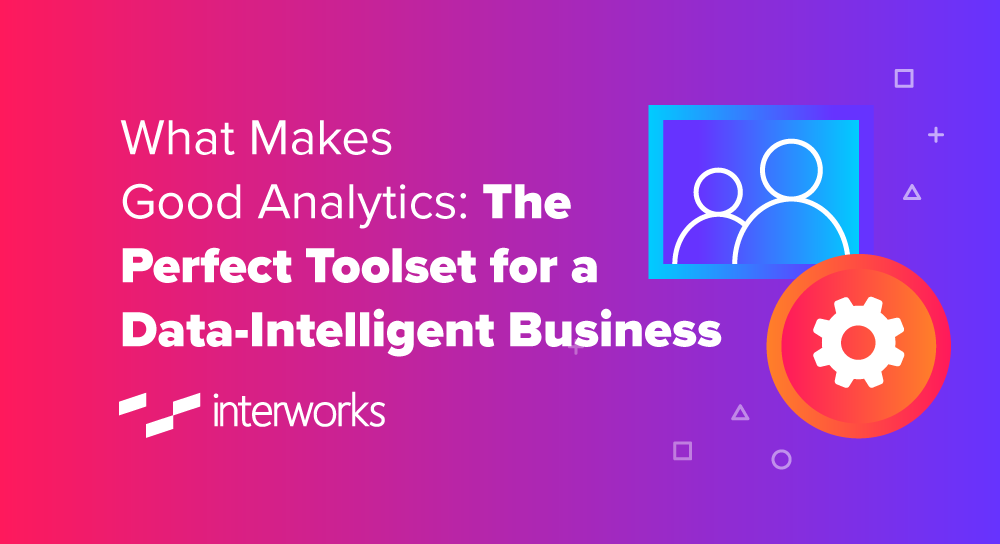We are beginning to enter a golden age for business intelligence. We have been steadily moving in this direction for the 10+ years I have been involved in the industry, but until now, there always seemed to be some blocker. The volume of data, the many places it lived, the niche skillsets required to use the available tools and sometimes the cost meant data could be difficult and slow to access.
CXO Strategy
Want to Become a Data Literate Organization? You’ll Need These Seven Principles
If you are asked in a job interview ‘what languages do you speak?’ would you consider your ability to read, analyze, work and communicate with data as an answer to that question? You’d be right to. Described as the second language of business by Gartner, data literacy is tipped to be the most in-demand skill by 2030.
6 MarTech Trends in 2021 and Beyond
Are you hoping to identify MarTech trends that can help your campaigns be more effective and run more smoothly? As our marketing capabilities evolve, so do the tools we use to measure our successes and how we achieve that success. In this blog, we unpack the six biggest MarTech trends looming over the marketing industry […]
Why Do Chief Data Officers Have Such Short Tenures?
Thirty years ago, a widely repeated joke was that CIO — the abbreviation for Chief Information Officer — really meant “career is over.” But as job tenures lengthened and the role became more institutionalized, the joke lost its relevance. Now, however, the most unstable C-suite job may be the Chief Data Officer, or CDO. Tenures are short, turnover is high, and as in the early days of the CIO role, many companies don’t seem to know exactly what they want from its incumbents. But the CDO job doesn’t have to be so unstable. We believe there are ways that its value can be made more apparent, and for benefits to be delivered quickly enough to prolong job tenures. A clearer definition of the role and a focus on business rather…
Do You Have the Right Software for Your Digital Transformation?
Most small and midsize businesses run on old software suites. Their systems no longer fit the demands of a work-from-anywhere world. Even worse, they are not well integrated, causing extra work for employees who spend long hours, often on personal time, toggling between programs to support what should be simple business processes. On top of that, poor software support erodes the vendor-customer relationship, because it makes conducting business more difficult.
5 Steps to Build an Enterprise Data Strategy, Straight From an Expert
Data can be a scary word. It shouldn't be, but it is. Mostly because people struggle with how to manage it. Many companies have reached the point where they have so much data, they don't know where to go next. Others believe they are so small, there's no need to invest in an enterprise data strategy.
A CIO weighs in on how AI can benefit non-technical roles, particularly HR
Jeff Gregory, the Thirdera CIO, discussed how AI can impact non-technical roles in an organization, especially in the realm of human resources.
When Low-Code/No-Code Development Works — and When It Doesn’t
For several decades, organizations have had two alternatives when they needed new information systems. They could build a new system using their own developers, or they could buy a system from an external vendor. The “build” approach, like a custom suit or dress, offers a close fit to business requirements. But as with custom tailoring of clothing, it typically means higher costs and a long wait. Systems from vendors, like off-the-rack clothing, don’t fit as well but are typically much cheaper and can be installed faster. Sometimes companies can configure these systems, but firms often find it easier to change their business to suit the system than vice-versa.
5 Questions Boards Should Be Asking About Digital Transformation
The CEO of a large retail company recently brought a $500 million digital-transformation-investment plan to his board. The board reviewed the proposal, but after asking a number of questions, they were unable to evaluate it. Was it too costly? Was it aiming too low? Was it focused on the right priorities? One board member admitted he just didn’t know.
Legacy Companies Need to Become More Data Driven — Fast
The ability to deploy data as a competitive business asset is what has distinguished a set of well-established, data-rich companies who have reigned as market leaders over the course of the past several decades. However, business conditions evolve, and today, these companies face a new set of challenges that threaten their hard-won leadership positions. How do these well-established data leaders transform from excellence in traditional data and analytics — of the kind that they have deployed in recent decades — to leadership in a new era of Big Data, AI, and machine learning driven decision-making? What do companies that have excelled at disciplines like database marketing, CRM, one-to-one marketing, and advanced analytics need to do to continue to stay on top?
Inside IKEA’s Digital Transformation
What does it mean for one of the world’s most recognizable retail brands to go digital? For almost 80 years, IKEA has been in the very analogue business of selling its distinct brand of home goods to people. Three years ago, IKEA Retail (Ingka Group) hired Barbara Martin Coppola — a veteran of Google, Samsung, and Texas Instruments — to guide the company through a digital transformation and help it enter the next era of its history. HBR spoke with Martin Coppola about the particular challenge of transformation at a legacy company, how to sustain your culture when you’re changing almost everything, and how her 20 years in the tech industry prepared her for this task.
How to Invest in the Data Analytics Universe
Just about every company worth its salt today uses data and analytics to better understand their customers and better meet their needs. For some companies, such as Google, Amazon and others, data science is the very foundation of their business model - but these companies use data analytics in service of their broader core mission. The universe of public companies that actually provide data and analytics solutions is far smaller and harder to define, but includes industry behemoths such as IBM, Microsoft, Salesforce, Oracle et al. for which data analytics is only one element of their solution suite. There are also a number of other public companies that focus on the software and data infrastructure that enable data analytics. This group is likely to rise as the sector matures and…
Truck maker Oshkosh drives decisions with data
American automotive manufacturer Oshkosh Corp. has designed and built specialty trucks for more than a century. But for the past several years, the Wisconsin-based company has been ramping up its data capabilities to drive decision-making. “We are focusing on developing predictive models for our businesses and functional areas,” says Anupam Khare, Oshkosh’s senior vice president and CIO. “In the last 18 months, we have developed roughly 35 analytic models.”
Harness Agile Analytics to Turn Big Data into Big Business
“Data! Data! Data! I can’t make bricks without clay.” – Arthur Conan Doyle, author of Sherlock Holmes Despite Arthur Conan Doyle’s words, making bricks without clay is the way the
A Data-Driven Approach to Identifying — and Retaining — Top Employees
The rise of digital collaboration platforms and new methods for harvesting data, along with new technologies and novel approaches for finding and managing talent, are redefining how companies will build their workforces going forward. Remote work has increased the sheer volume of digital communications and work product generated by employees, propelled by the mass adoption of collaboration platforms like Microsoft Teams and Slack. This type of employee data represents the keys to the human side of the corporate kingdom, and from it, practically every aspect of performance can be analyzed using technology available today, revamping talent acquisition and management. The possible use cases are limited only by the imagination. The so-called “war for talent,” bandied about in the media since it was coined by McKinsey & Company in 1997, is…
The Rise of the Analytical CMO
In the post-Covid era, organizations are recalibrating their marketing strategies to make better use of data and analytics to stay ahead of the competition. Increasingly, it is the Chief Marketing Officer (CMO) who has to take the lead to drive digital adoption and become the organization’s digital evangelist. Data is everywhere and the CMO is…
Effective data leaders focus on decision-making, sharing, Gartner says
Chief data officers are heavily involved in digital transformation, and successful CDOs link business goals with analytics, Gartner said.
Gartner says composable data and analytics key to digital transformation
Composable analytics, graph databases, and data fabrics were among the top trends investigated at Gartner's Data & Analytics Summit.
Managing Cloud Data Warehouse and Analytics: a guide for Chief Data Officers (CDOs)
What Do CDOs Need to Consider? This blog was developed from a Thought Leadership whitepaper written by Maria Villar. Managing Data in the Cloud is a guide to help Chief Data Officers (CDOs) manage data
4 tips for launching a successful data strategy
Data. I find it somewhat astounding that four little letters are having such a profound impact on our social, political, and corporate worlds. Data is quickly becoming the world’s currency, which puts real pressure on CIOs to develop a high value strategy for their businesses. Most companies are teeming with data, but for a variety of reasons, have not been able to put it to good use. A bald allusion to the Rime of the Ancient Mariner comes to mind, “Data, data everywhere, but not a drop to use.”


















